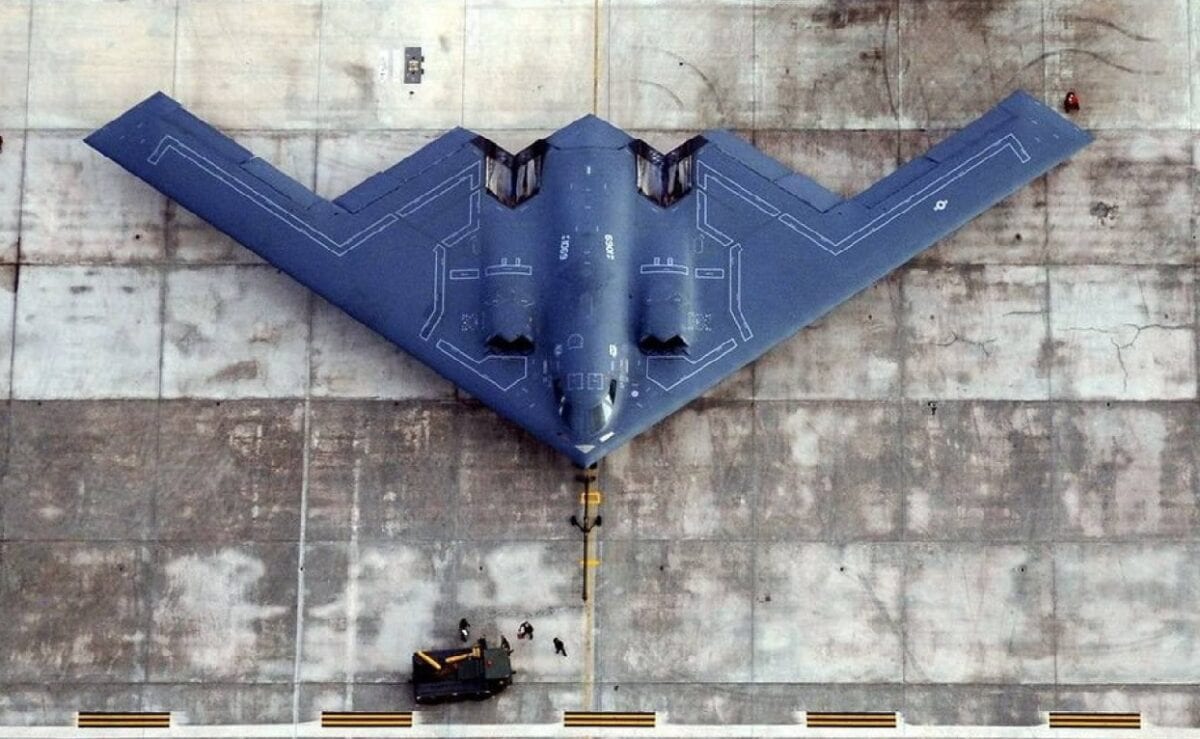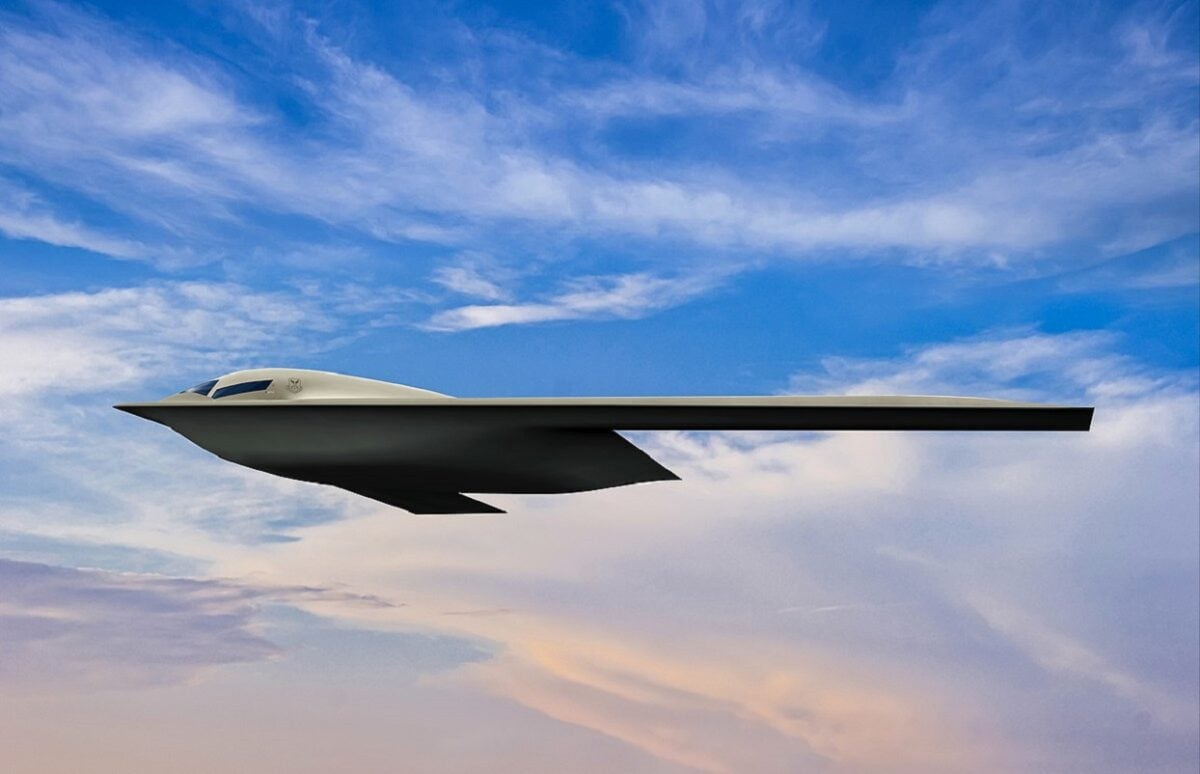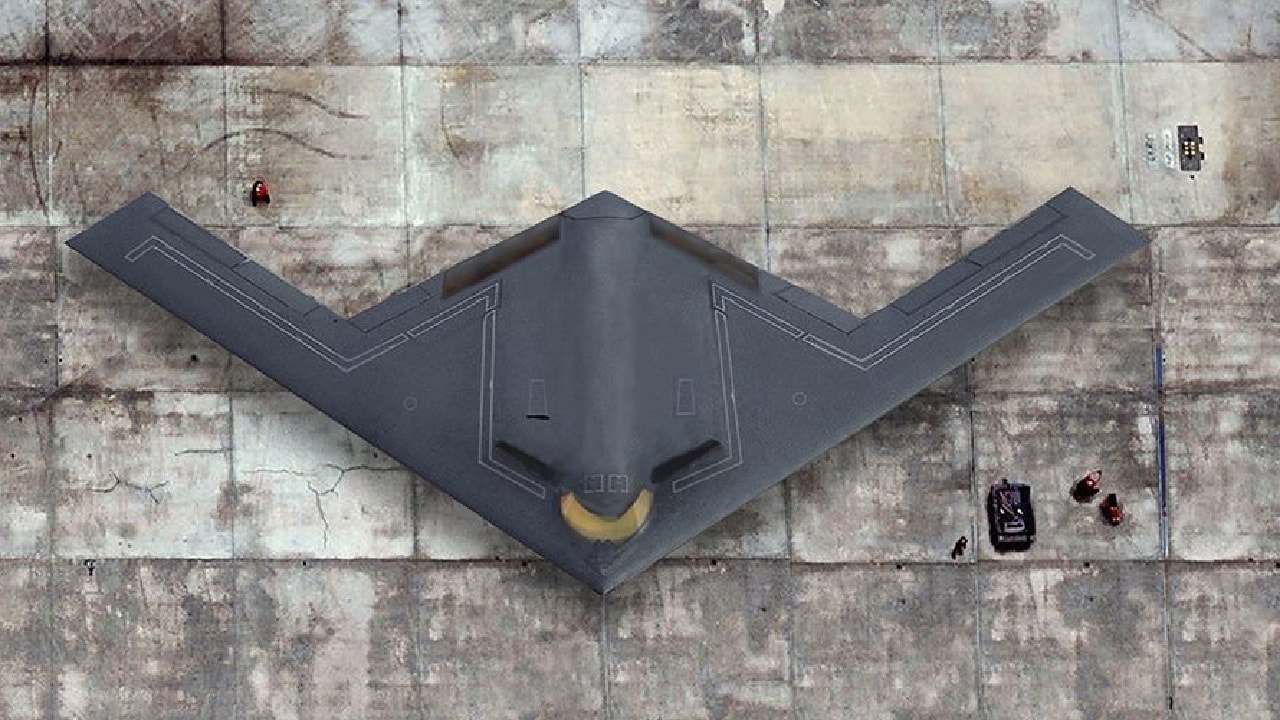How China could build a stealth bomber that rivals the B-21 Raider: The Northrop Grumman B-21 Raider stealth bomber will eventually replace the United States Air Force fleet of bombers that includes the Rockwell B-1 Lancer, Northrop Grumman B-2 Spirit, and the Boeing B-52 Stratofortress.
That’s if everything goes as planned, and given that the B-21 won’t begin to enter service until at least 2026-2027 at the earliest, it could be a while before the last of those other bombers is retired from service.
In fact, the current fleet of B-52H bombers could remain in service for decades to come.
However, there are now reports that the B-21 Raider could have already met its match, as a Chinese drone manufacturer claims a prototype of its unmanned stealth aircraft that could rival the Northrop Grumman bomber.
B-21 Raider, Drone Edition, for China?
Zhongtian Feilong Intelligent Technology, based in Xian, has produced a prototype of its Feilong-2 (Flying Dragon-2) drone, The South China Morning Post first reported last year.
According to a statement posted to the WeChat social media service, the Chinese firm said the multirole high-subsonic unmanned aerial vehicle could be deployed in precision strikes on a variety of assets including enemy command centers, military airstrips and even aircraft carriers.
The drone could also be employed with a swarm of smaller unmanned aerial systems to carry out reconnaissance and surveillance, or even engage in a saturation attack. The Feilong-2 reportedly has an internal payload capacity of six tonnes and an operation range of 7,000 km or roughly 4,350 miles. It has a ceiling of 49,000 feet and can reach speed of 780km/h or about 484mph.
The developer claims that those capabilities match the Northrop Grumman B-21 Raider in terms of speed, attack range, payload and stealth capabilities. However, Zhongtian Feilong also noted that its Feilong-2 drone would be cheaper to produce.
“This means the American B-21 has already fallen behind, even before it enters service,” Zhongtian Feilong said in its statement on WeChat.
The Cyber Shafarat website shared images of the Feilong-2, which it been pixilated and blurred out to conceal some details of the aircraft. A caption noted, “a prototype of a new unmanned aerial vehicle of the heavy class 飞龙 -2 / Feilong-2 was demonstrated. This drone-bomber, made according to the ‘flying wing’ scheme with a jet engine and having a low radar signature, has been developed for a long time by Zhongtian Feilong.”
It is unclear how the drone developer could claim that the Feilong-2’s capabilities match the Northrop Grumman B-21, as few details about the still-in-development bomber have been made public. It is known that it uses technology repurposed from other programs including the same Pratt & Whitney engine that is in the Lockheed Martin F-35 Joint Strike Fighter. But the F-35 is able to reach Mach 1.6 at altitude, far exceeding the claimed 780km/h of the Feilong-2.

B-2 Bomber. Image: Creative Commons.

Image: Creative Commons.
While it is true that the B-21, which had its performance requirements largely frozen in 2010, might not be a major leap forward it seems unlikely that Zhongtian Feilong is even close in terms of technology.
Peter Suciu is a Michigan-based writer who has contributed to more than four dozen magazines, newspapers and websites. He regularly writes about military small arms, and is the author of several books on military headgear including A Gallery of Military Headdress, which is available on Amazon.com.

